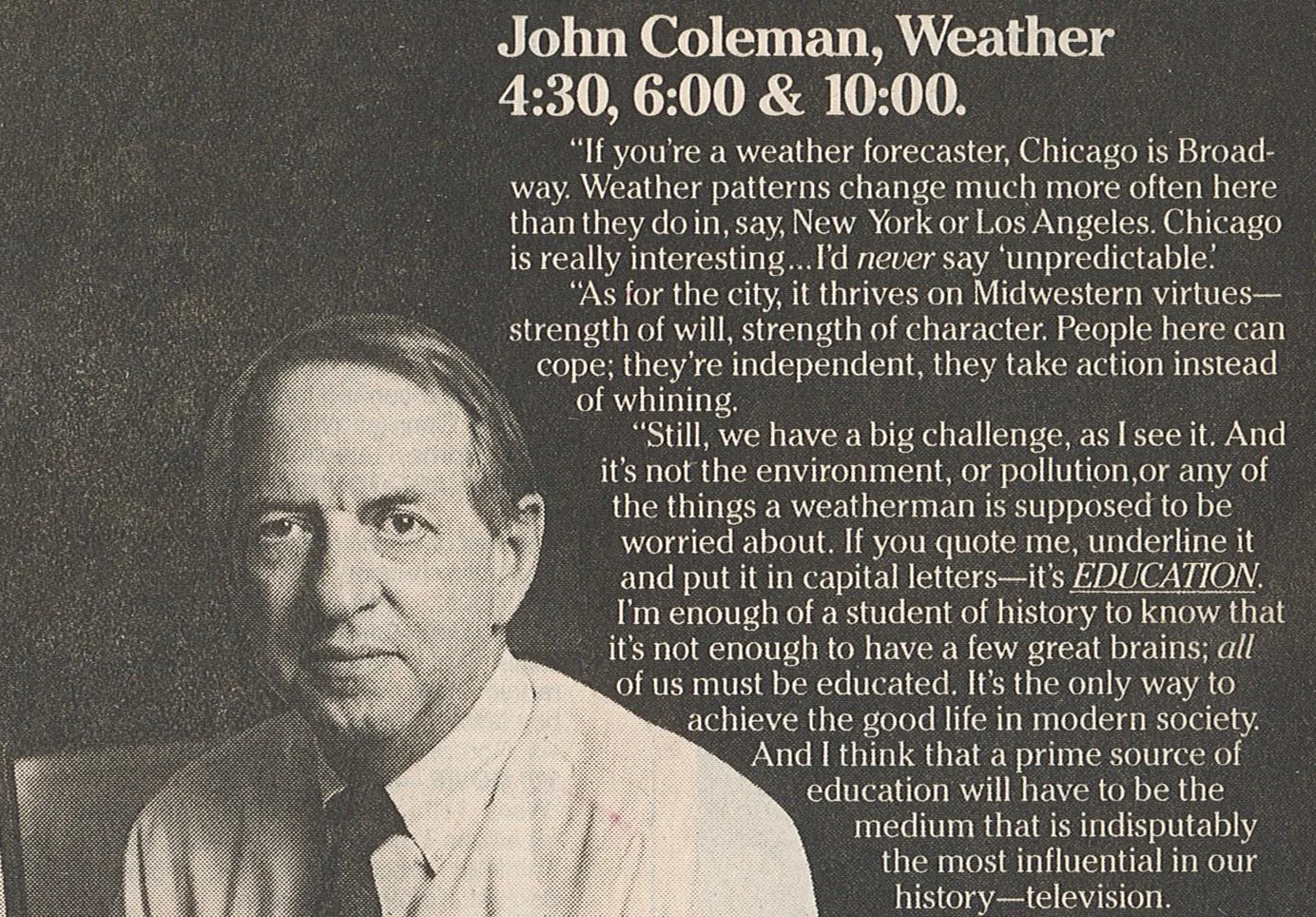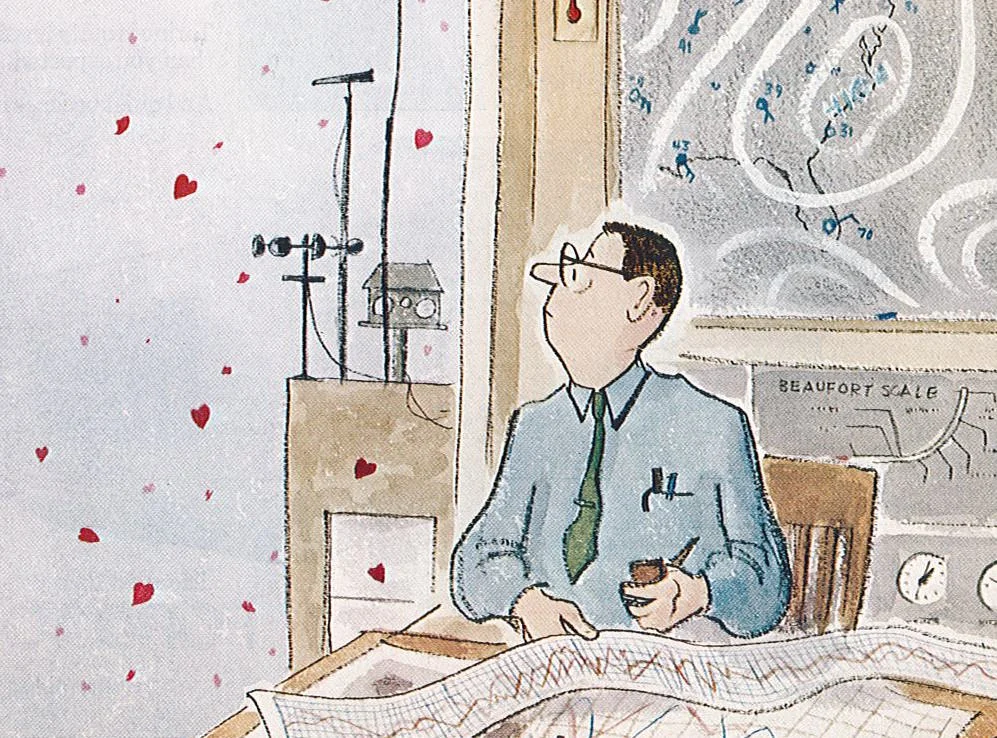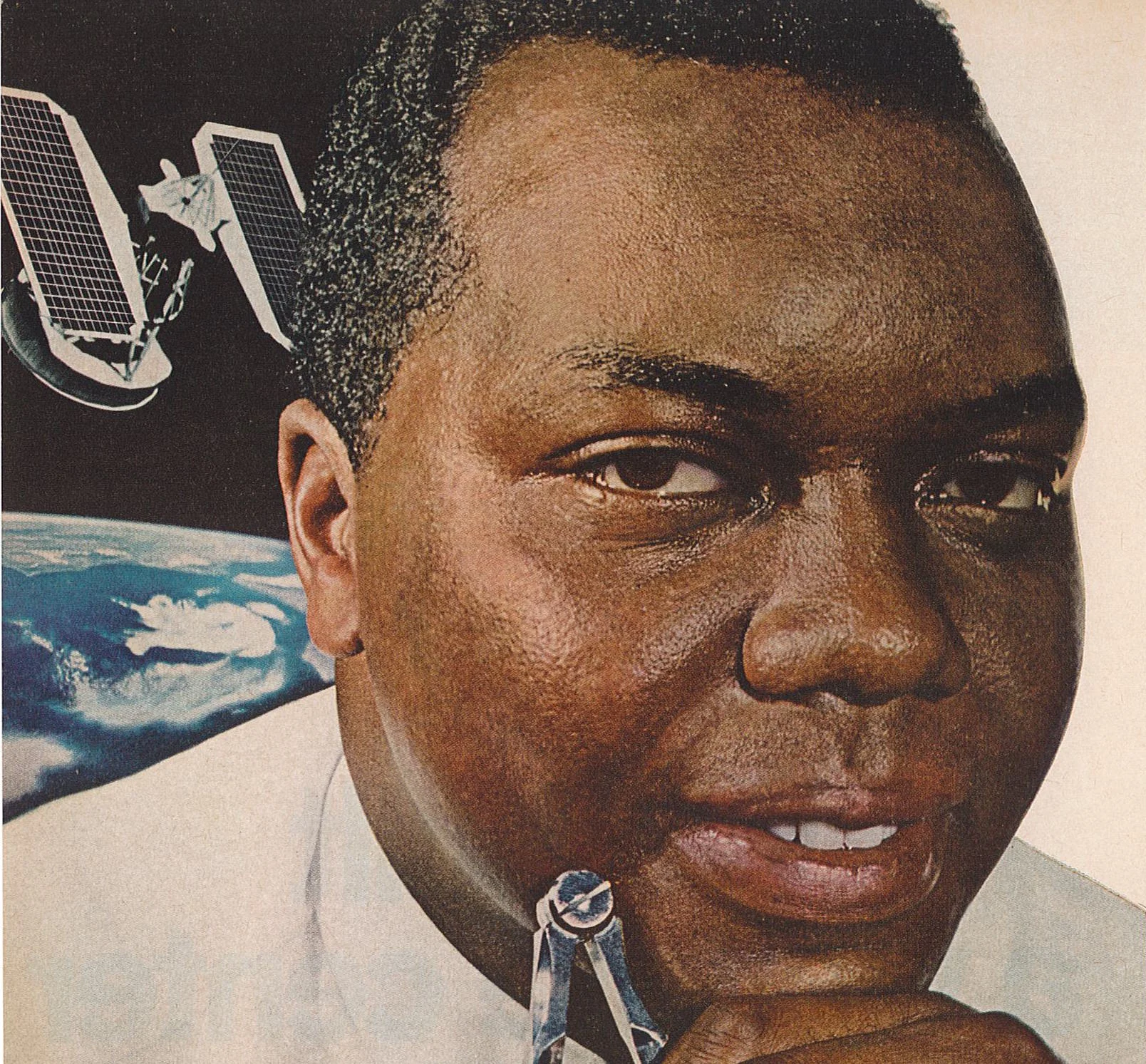Coleman on Chicago, 1985
John Coleman is one of the longest-working and most prominent TV meteorologists. In a career stretching from 1953 until 2014, he worked his way up from minor markets in Illinois to the national show Good Morning America during the late 1970s. He helped establish The Weather Channel in 1982, serving as the first President and CEO before losing a battle for control with co-founder Frank Batten a year later. In 2007, he wrote an essay attacking the motives of climate scientists, which led to numerous appearances in conservative media. His celebrity lends false credibility to the efforts to undermine climate science.
This atypical ad promoted Coleman during the years after he had been forced back to local television. Few ads for TV weathermen devote so much space to text; most emphasize some combination of technology, accuracy, trustworthiness, and an appealing persona. Instead, this ad begins with an appeal to local chauvinism, framing the Second City’s weather as first rate. For a weather forecaster, “Chicago is Broadway. Weather patterns change much more often here than they do in, say, New York or Los Angeles.” Coleman extols his viewers for embodying Reagan-era conservative values (or “Midwestern virtues”) like “strength of will, strength of character,” flattering Chicagoans that “people here can cope; they’re independent, they take action instead of whining.”
The text also presages the anti-environmentalist rhetoric that would make Coleman a conservative favorite. Framing himself as an iconoclastic truth-teller, he contrasts his concerns with the expected worries of a meteorologist during the 1980s: “We have a big challenge, as I see it. And it’s not the environment, or pollution, or any of the things that a weatherman is supposed to be worried about.” He frames his work as part of public education, claiming that television is “indisputably the most influential [medium] in our history.”
Let’s hope the televisual rise of Donald Trump does not prove Coleman ironically and tragically correct.
Learn More:
· Robert Henson, Weather on the Air: A History of Broadcast Meteorology (American Meteorological Society Books, 2010): pp. 129-147, 198.
· Charles Homans, “Hot Air: Why Don’t TV Weathermen Believe in Climate Change?” Columbia Journalism Review (January/February 2010).
· Frank Batten and Jeffrey Cruikshank, The Weather Channel: The Improbable Rise of a Media Phenomenon (Harvard Business Press, 2002).





